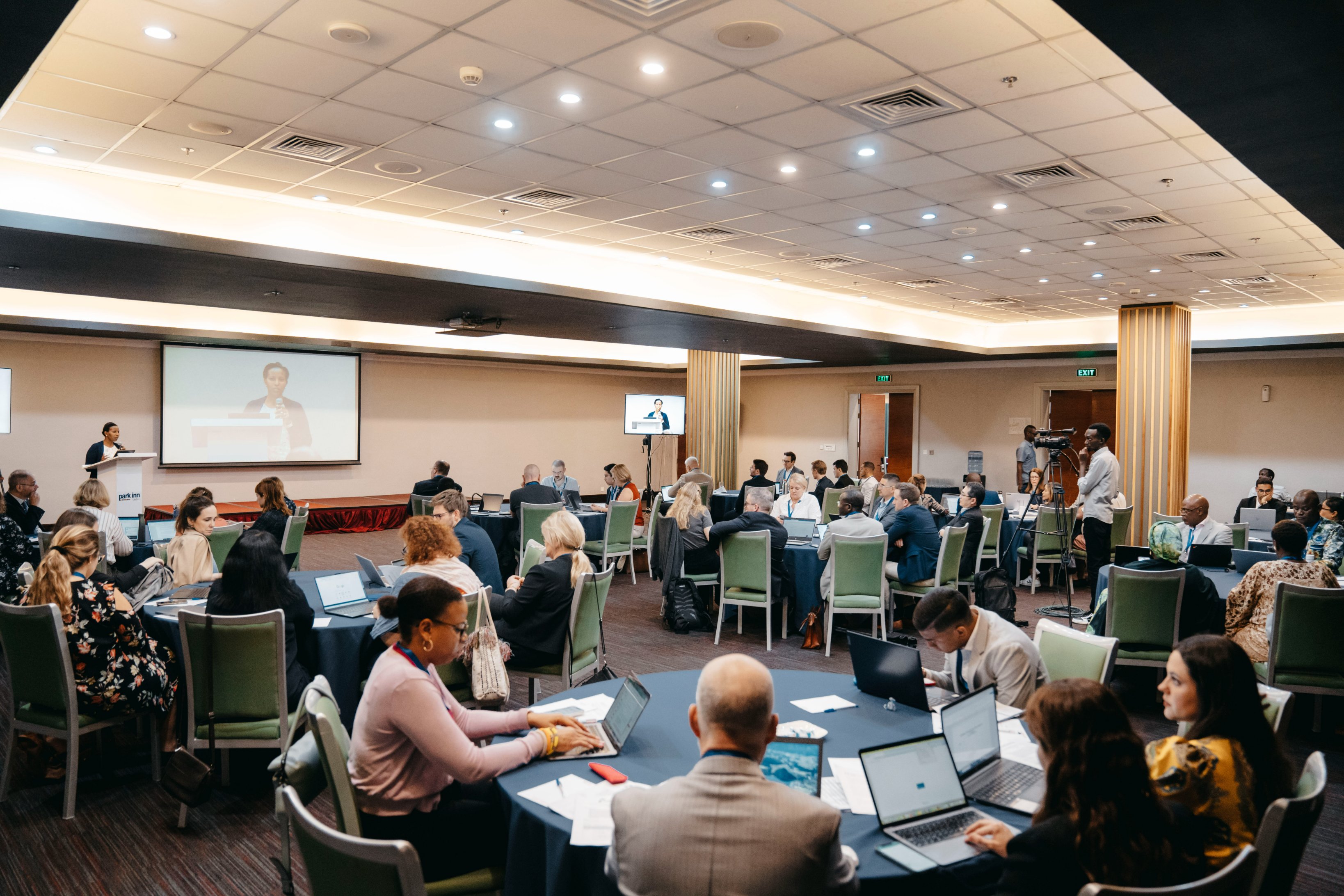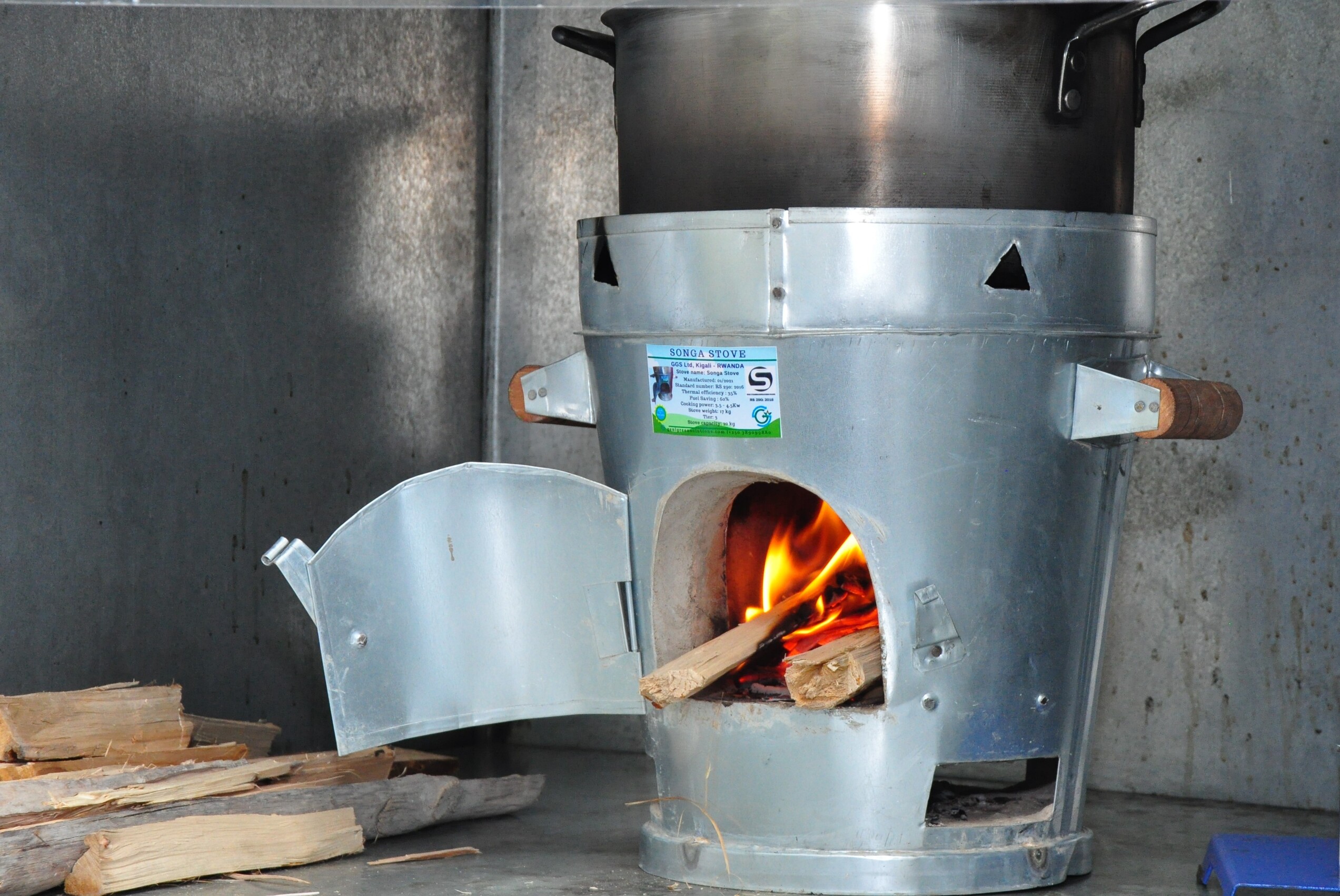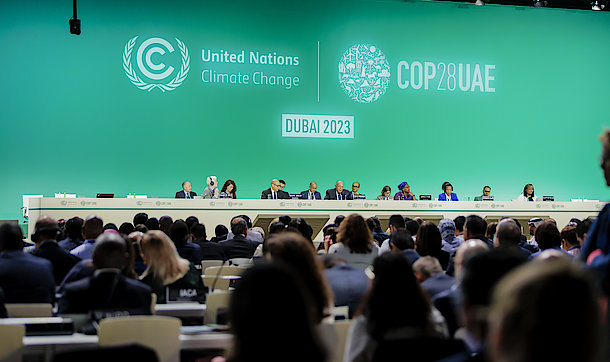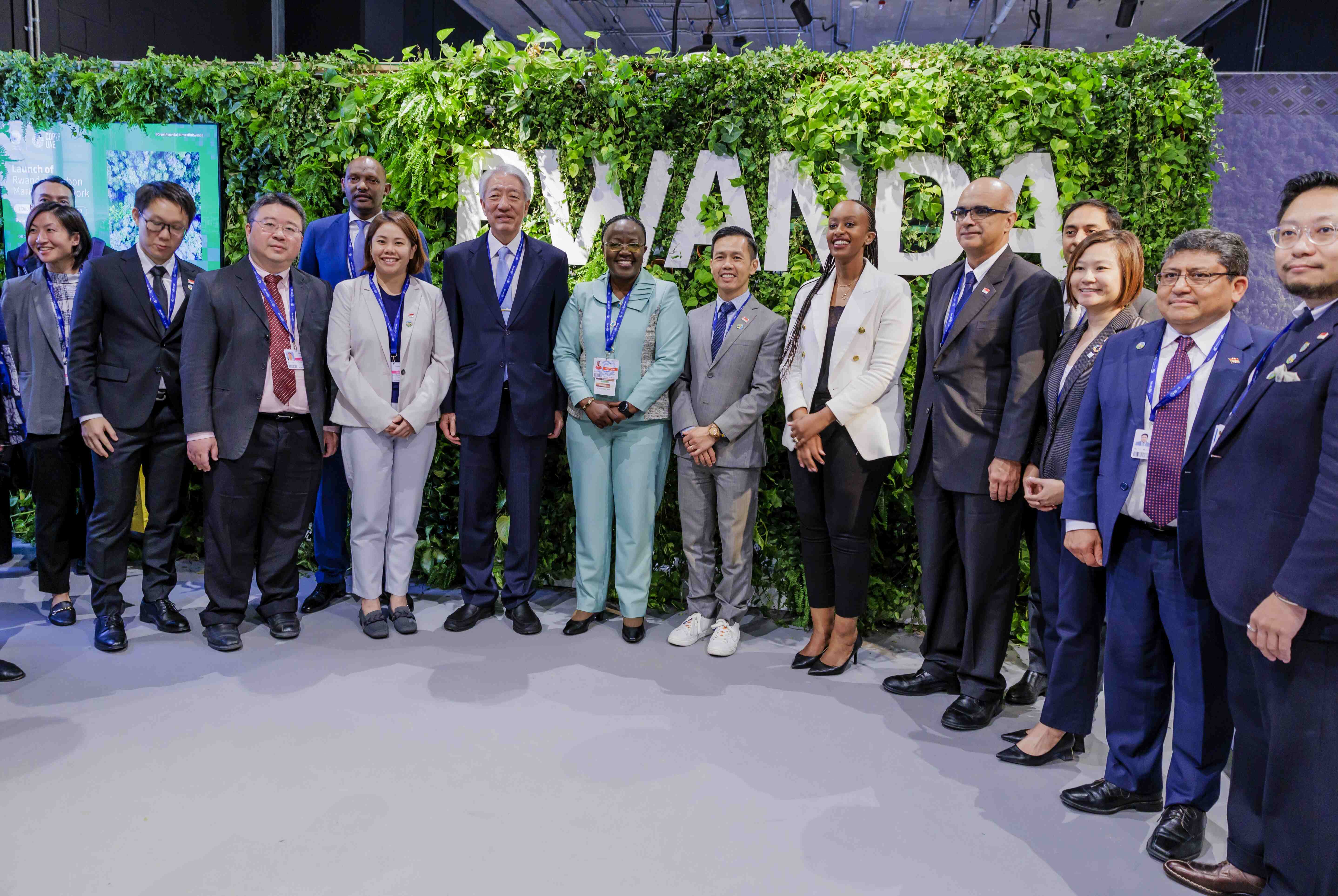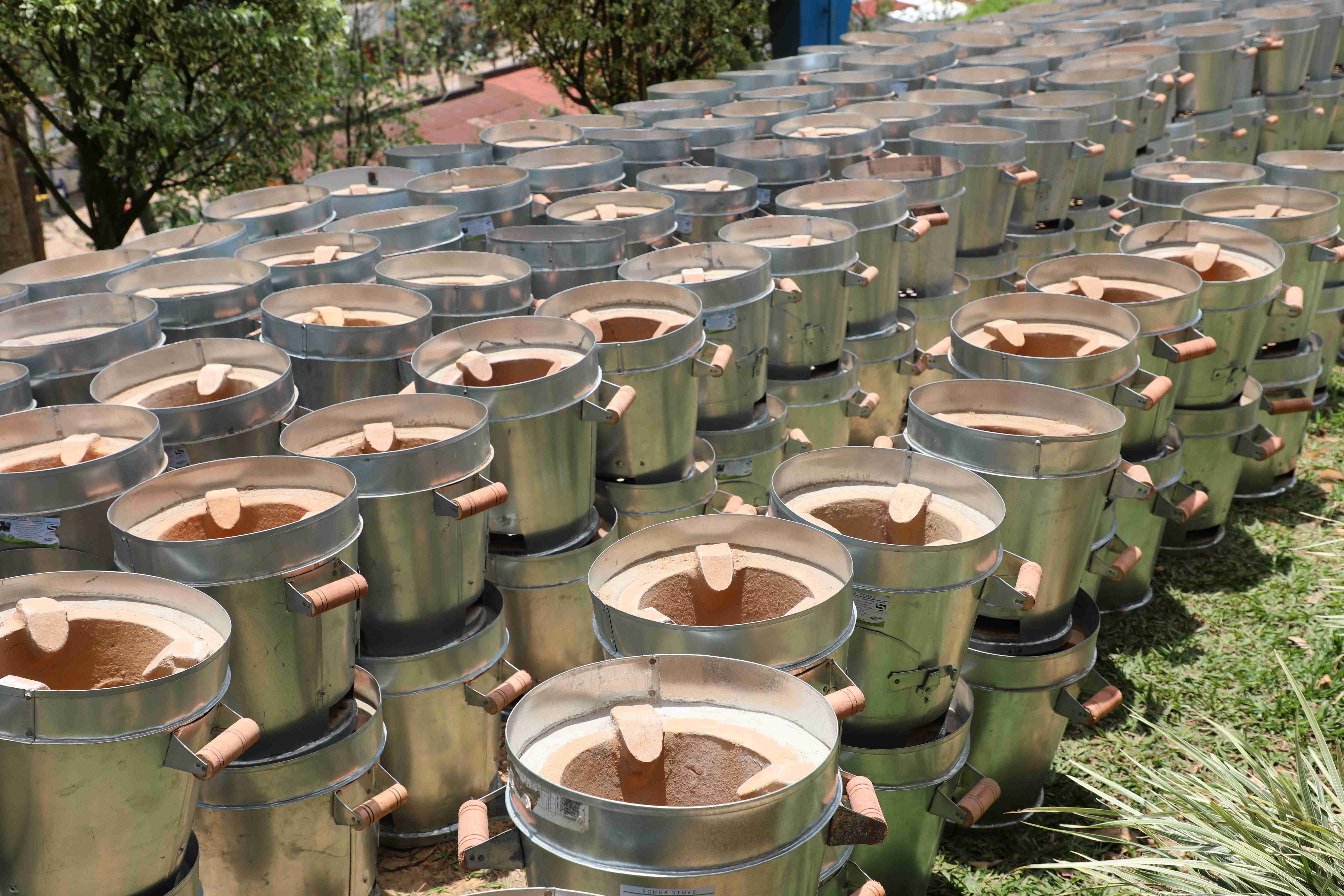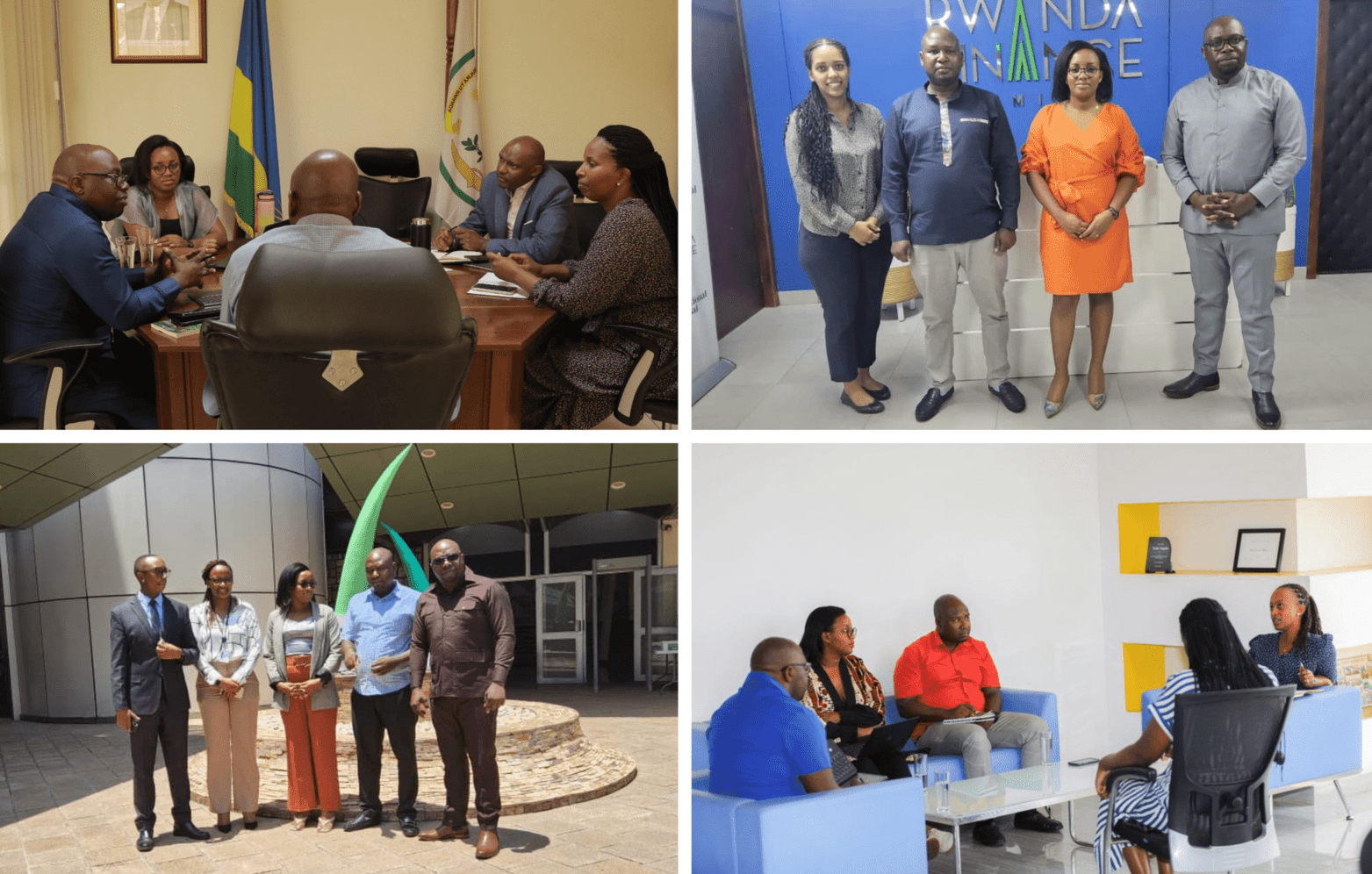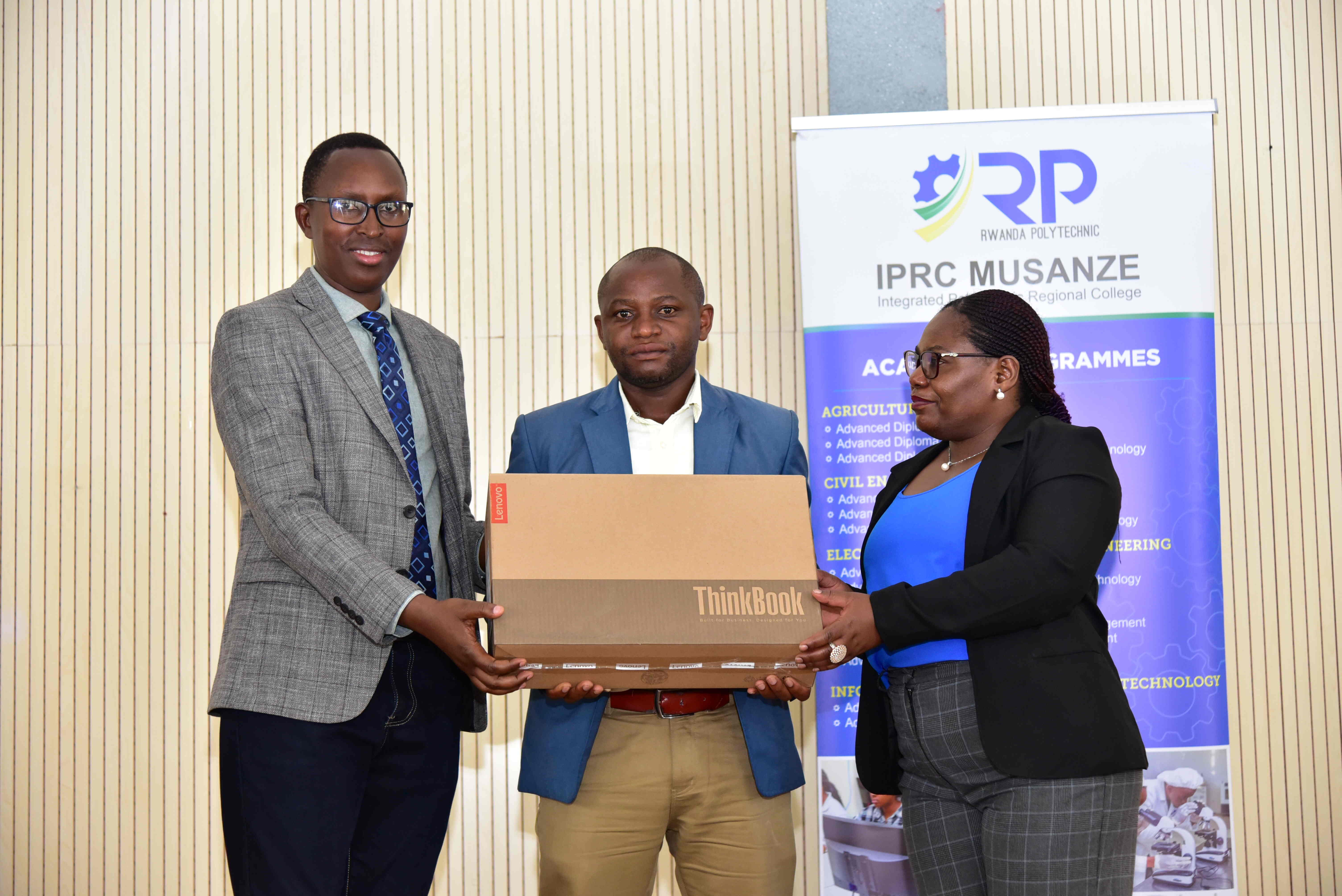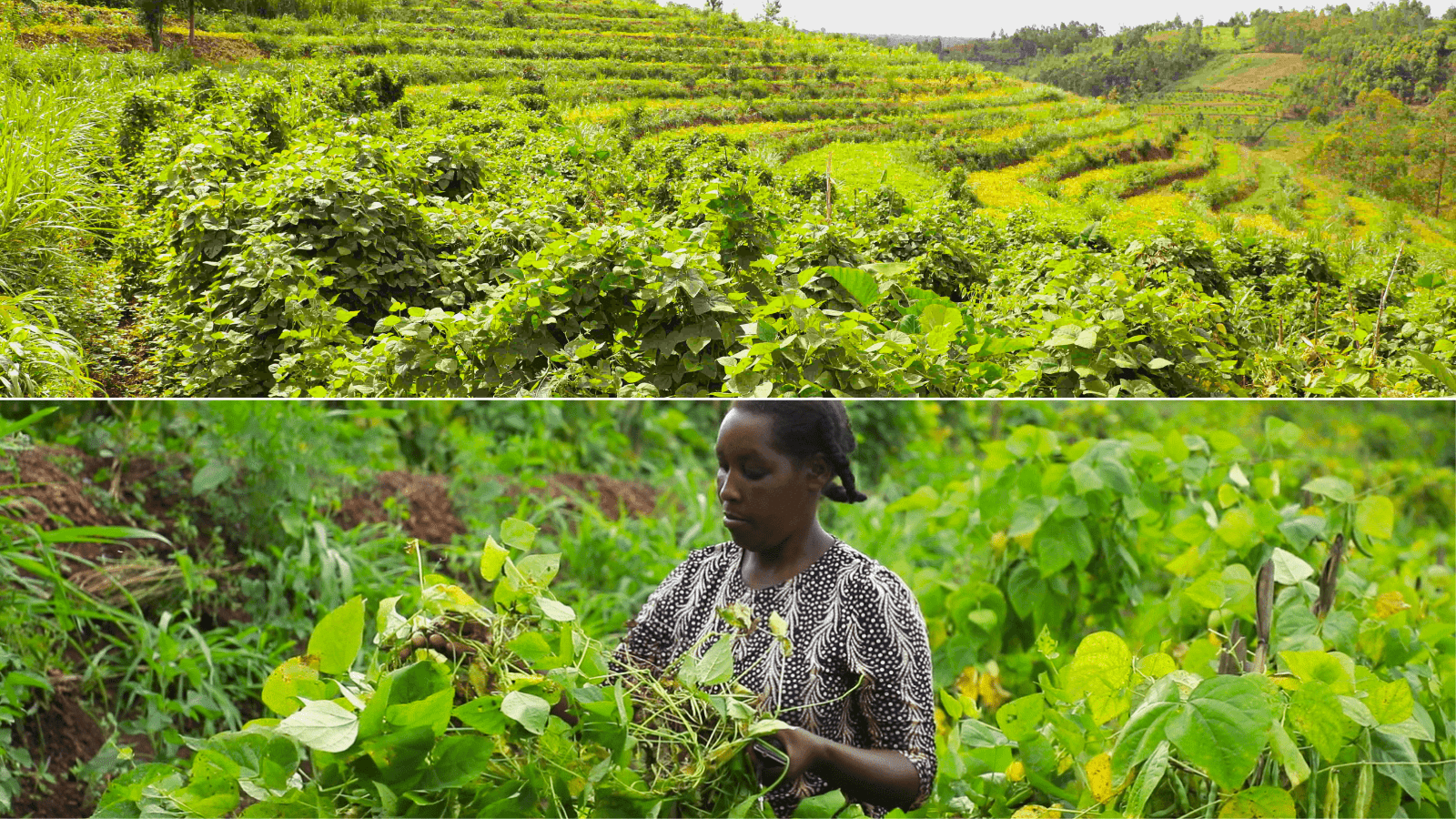
From reluctance to acceptance: The LDCF3 Project beneficiaries embraces terraces for agricultural transformation
The beneficiaries of the Ecosystem/Landscape Approach to Climate Proof the Rural Settlement Programme of Rwanda, also known as LDCF3 Project, who initially hesitated to adopt terrace farming have now passionately embraced the practice after recognizing its numerous agricultural benefits.
The LDCF3 Project, from its inception, faced resistance from beneficiaries who were skeptical about the viability of terrace farming. Concerns ranged from the perceived complexities of terrace construction to doubts about the economic returns and practicality of maintaining such structures over time.
The turning point in the adoption of terrace farming came with the implementation of comprehensive educational initiatives and awareness campaigns by the LDCF3 Project. Workshops, training sessions, and field demonstrations were organized to dispel misconceptions and provide hands-on experience, showcasing the tangible benefits of terrace farming.
"I never imagined that terrace farming could make such a difference in our lives. At first, I was hesitant about this project, but now, witnessing the agricultural benefits it brings, I can only express gratitude. Terrace farming has not only transformed our landscape but has also given us a sustainable and thriving source of livelihood. It's a testament to the power of innovation in agriculture, and I am truly thankful for the positive impact it has had on our community." Said Dina Mukarusanga, LDCF3 Project beneficiary in Kirehe District.
This shift in attitude not only marks a significant turning point for individual farmers, but also underscores the adaptability and resilience of communities in the face of change. Beneficiaries attest that their agricultural production has doubled and/or tripled since the initiation of terrace farming.
Terrace farming has not only revitalized crop yields, it has also provided an unexpected benefit for livestock.
“The lush green terraces, once infertile slopes, now offer a rich source of nourishment for our animals. The carefully managed grass and vegetation on these terraces not only prevent soil erosion but have become a natural and nutritious grazing ground for our livestock. It's incredible to witness how terrace farming, initially aimed at improving crop cultivation, has also become a sustainable solution for enhancing the well-being of both our crops and livestock, fostering a harmonious balance in our agricultural practices." Said Jean Bizimana, LDCF3 Project in Kirehe District.
One of the key advantages that resonated with beneficiaries was the efficient use of available land through terrace farming. The tiered structure of terraces maximizes the use of sloping terrain, allowing farmers to cultivate more crops in limited space.
The LDCF3 Project emphasized the role of terraces in water conservation and soil health. Terraces help retain water, preventing runoff and allowing for better irrigation practices. Additionally, the prevention of soil erosion on sloping lands became a compelling argument for the adoption of terrace farming among beneficiaries concerned about preserving the fertility of their fields.
As beneficiaries gradually embraced terrace farming, they witnessed a notable increase in agricultural productivity. The tiered structure allowed for better sunlight exposure and optimized growing conditions, resulting in improved yields. This positive outcome served as a powerful motivator for farmers to continue with terrace cultivation.
Overcoming their initial reluctance, beneficiaries discovered the economic benefits associated with terrace farming. The diverse range of crops that can be cultivated on terraces not only contributes to food security but also opens up new avenues for income generation, enabling farmers to diversify their agricultural practices.
The LDCF3 Project is a five-year initiative that aims to climate-proof the rural settlements in Gakenke and Kirehe Districts by building communities’ resilience to climate change. It is implemented by REMA in partnership with Rwanda Housing Authority, Meteo Rwanda and the Districts of Gakenke and Kirehe with support from the Global Environment Facility (GEF) through the United Nations Development Programme (UNDP)
Topics
More posts
Rwanda hosts a two-day workshop for Negotiators of the High Ambition Coalition to End Plastic Pollution
Rwanda has from 14th to 16th February hosted a two-day workshop for negotiators of the High Ambition Coalition to End Plastic Pollution (HAC). The…
LDCF3 Project’s Improved Cookstoves: A Dual Solution for Climate Change and Human Health
In a ground-breaking move towards sustainable living, the Rwanda Environment Management Authority (REMA) is making significant strides in the fight…
From reluctance to acceptance: The LDCF3 Project beneficiaries embraces terraces for agricultural transformation
The beneficiaries of the Ecosystem/Landscape Approach to Climate Proof the Rural Settlement Programme of Rwanda, also known as LDCF3 Project, who…
Rwanda welcomes historic COP28 decision to transition away from fossil fuels
The Government of Rwanda has welcomed the ground-breaking decision made at the 28th Conference of the Parties (COP28) to the United Nations Framework…
Rwanda launches Carbon Market Framework to advance Climate Action for a Sustainable Future
Rwanda has today launched its National Carbon Market Framework in a significant stride towards a greener and more sustainable future. The framework…
Over 45 professionals complete a capacity-building program in climate change analysis and reporting
Kigali, 17 November, 2023- Kigali, REMA, in collaboration with the African Institute for Mathematical Sciences in Rwanda(AIMS_Rwanda), celebrated the…
REMA’s LDCF3 Project distributes 5,000 improved cookstoves to beneficiaries to tackle climate change
The Rwanda Environment Management Authority distributes 5,000 improved cookstoves to beneficiaries of the Landscape Restoration Approach to Climate…
BIOFIN’s Technical Advisor on Environmental Finance visits Rwanda to foster stakeholder engagement
The Biodiversity Finance Initiative (BIOFIN)’s Technical Advisor on Environmental Finance for Africa, Mr. Bruno Mweemba recently visited Rwanda from…
World Ozone Day: REMA recognizes students and lecturers with technologies and eco-friendly cooling solutions
Rwanda in September 2023 joined the rest of the world to mark the World Ozone Day with the theme “Montreal Protocol: Fixing the Ozone layer and…
